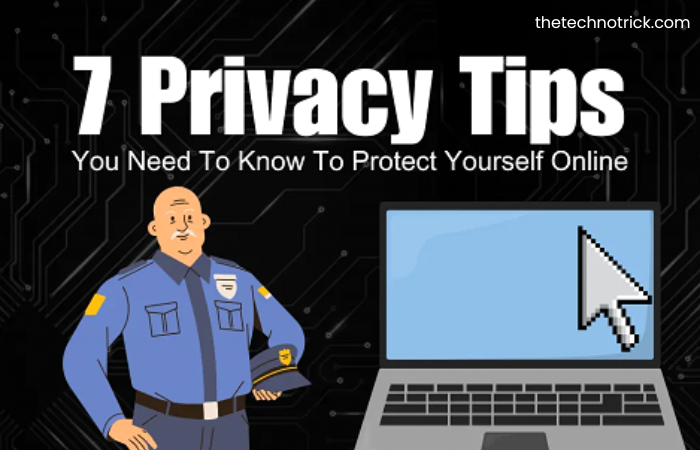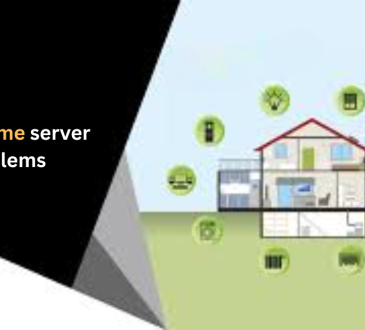
7 Privacy Tips You Need To Know To Protect Yourself Online are essential for safeguarding personal data in today’s digital world. Cyber threats, tracking, and data breaches are increasing, making it crucial to take the right steps. TheTechnotrick recommends being proactive with privacy settings, secure browsing habits, and strong passwords.
Implementing these strategies ensures better protection from hackers, identity theft, and surveillance. Privacy awareness empowers users to stay in control of their digital footprint. TheTechnotrick emphasizes the importance of staying informed and adopting security practices.
Related:-
The Future of Small Business Transactions
Best Sites to Buy Facebook Likes, Followers and Views
Why Daily Cash Flow Statements Matter for Your Business
EarnKaro: The Ultimate Shortcut to Earning Money Fast!
Best 7 Privacy Tips to Keep Yourself Safe Online
Protecting personal information online has become more important than ever. The internet is filled with security risks, from data breaches to digital surveillance. This guide provides the best 7 privacy tips everyone should follow to stay safe online. Whether you’re new to cybersecurity or just looking to improve your digital protection, these tips will help secure your personal data from threats.
Tip #1 – Use Security Services
One of the most effective ways to enhance online privacy is by investing in reliable security tools. While many antivirus programs claim to offer protection, some may actually compromise your privacy. Instead of using random software, opt for trusted security services like VPNs that encrypt your internet connection.
NordVPN is an excellent choice, offering real-time encryption and a secure browsing experience. To get discounts on premium services, you can check out VPNBlade, which provides exclusive deals.
Tip #2 – Secure Your Browser
Your browser plays a crucial role in online security. Many websites track user activities, often exposing private data. Using privacy-focused browsers like Brave or Mozilla Firefox helps limit exposure.
Additionally, avoid visiting illegal or pirated content websites, as they often contain malware or spyware. Always clear your browsing history and cache regularly to minimize tracking.
Tip #3 – Disable Location Tracking
Most apps and websites track location data without users realizing it. While location services can be helpful for navigation apps, granting unnecessary access increases privacy risks. Many apps request location data even when it’s not needed. To improve security, disable location tracking for non-essential applications.
You can do this in your phone settings under Privacy & Security > Location Services on iPhone or Settings > Location on Android.
Tip #4 – Delete Cookies Regularly
Cookies store browsing data, helping websites remember login details and preferences. However, they also track online activity, which can be exploited by advertisers or hackers. Deleting cookies frequently ensures that stored data does not compromise privacy. Here’s how to clear cookies on Google Chrome:
- Open Chrome and click on the three dots in the top-right corner.
- Select Settings > Privacy and Security > Clear Browsing Data.
- Choose All Time as the range and check Cookies and other site data.
- Click Clear Data to remove all stored cookies.
Tip #5 – Enable Two-Factor Authentication
Two-factor authentication (2FA) adds an extra layer of security to online accounts. With 2FA enabled, logging in requires a password and a unique OTP (One-Time Password) sent via SMS or email. To activate 2FA on Gmail:
- Open the Google Account Settings and go to Security.
- Scroll to 2-Step Verification and enable it.
- Add your phone number or email as a second verification method.
- Complete the setup, ensuring enhanced security for your Google account.
Tip #6 – Use Private Social Media Accounts
Social media platforms collect vast amounts of user data. If privacy is a priority, switching to private accounts prevents strangers from accessing personal details.
Apps like Telegram and Signal offer secure messaging with end-to-end encryption. On platforms like Instagram and Facebook, enabling the private account option limits visibility to approved followers only.
Tip #7 – Develop a Privacy Protection Routine
Maintaining online security requires continuous effort. Following these tips regularly helps protect personal data from cyber threats. Here’s a summary of key actions:
- Use trusted security software such as VPNs and antivirus programs.
- Secure browsers and avoid risky websites that can expose data.
- Disable unnecessary location tracking to prevent unauthorized access.
- Delete cookies and browsing history frequently to reduce tracking.
- Enable two-factor authentication on all major accounts.
- Use private social media settings for enhanced privacy.
Additional Information: The Impact of Cyber Threats on Privacy
Cyber threats are constantly evolving, with hackers using advanced methods to steal personal information. Data breaches, phishing attacks, and spyware infections are among the most common risks.
Taking proactive measures, such as using encrypted communication channels and securing online transactions, can significantly reduce vulnerabilities. Being aware of potential cyber threats helps individuals stay cautious while browsing the internet.
Frequently Asked Questions
Q1. Why is online privacy important?
A: Protecting online privacy prevents identity theft, fraud, and unauthorized tracking by companies or hackers.
Q2. How can I check if my data has been leaked online?
A: Websites like “Have I Been Pwned” allow users to check if their email or password has been compromised in data breaches.
Q3. Are free VPNs safe to use?
A: Most free VPNs have security risks, including logging user data. Paid VPNs like NordVPN offer better encryption and privacy.
Q4. What is the safest way to store passwords?
A: Using password managers like LastPass or Bitwarden ensures strong password storage and security.
Q5. Can deleting cookies improve online privacy?
A: Yes, deleting cookies removes tracking data stored by websites, enhancing privacy and reducing targeted ads.
Q6. What is the best browser for privacy?
A: Brave, Mozilla Firefox, and Tor are considered the most privacy-focused browsers.
Conclusion
Protecting online privacy requires consistent effort. From using security tools to enabling two-factor authentication, every small step contributes to a safer digital experience. Avoiding data tracking, disabling location services, and regularly deleting cookies further strengthen privacy.
TheTechnoTrick recommends implementing these 7 privacy tips to keep personal data secure. In today’s digital world, staying informed about cybersecurity is essential for safeguarding online presence.



